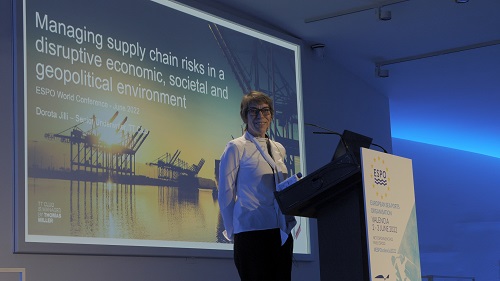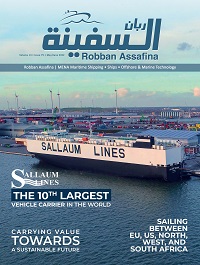TT Club highlights long-term changes to supply chain risk profiles
The challenges inherent in today’s international trade and the supply chains that service it are painfully obvious – higher prices of energy and food, shortages of and delays in delivering manufactured goods, dynamic changes in markets and sourcing regions. The on-going effects of the pandemic, with its associated lockdowns and the war in Ukraine are proving catalysts to ignite underlying economic and environmental trends that will continue to fuel long-term changes in the pattern of global supply and demand.
As a specialist in providing insurance and risk management services to the international transport and logistics industry, TT Club is convinced that a thorough understanding of the practical risks is vital in mitigating the dangers to safety and security that are a consequence of these dynamic factors.

“We are suffering from a disappearing ability to absorb short-term shocks to the supply chain because of fundamental societal and geopolitical changes to the global equilibrium,” commented Dorota Jilli, a Senior Underwriter at TT speaking at the Annual Conference of the European Sea Ports Organisation (ESPO) in Valencia this month. “Yes, Covid and the war are disruptive and are driving up prices but the longer-term trends of production cost increases in Asia and stricter demands of ESG* mean that cheaper goods and transport services are features of a past global economy.”
In her presentation, Jilli explained in detail some of the prevalent risks that operators face in this changed environment. Abandoned cargo is more prevalent with delays through port congestion and lockdown closures meaning the incidence of consignee bankruptcy or goods being unwanted due to loss of markets is higher. This is particularly concerning when dangerous good are left in storage for excessive periods as the tragic incidents in Beirut last year and in Chittagong more recently attest.
“Trends in cargo theft are also in flux with more essential goods such as food and beverages being targeted and luxury goods and electronics not so much as in the past,” commented Jilli. “Cargo at rest, either at ports or inland staging areas, some of which have been hurriedly pressed into service as overflow facilities, is increasingly subject to theft. With shippers looking for ‘workarounds’ to reduce costs or avoid congestion, thieves have been quick to adapt their methodologies and the use of online means of deception and insider recruitment are now both more common.”
TT sees the correct use of data to analyse these trends as being of crucial importance and is utilising its own claims experience along with theft reporting agency information to maintain and expand the all-important industry awareness of the evolving dangers. This, in addition to the developing technologies to support the supply chain and offer predictable and resilient sourcing without the geopolitical risks of foreign suppliers and other disruptions, is seen as a primary mitigator in the management of the developing, modern, longer-term risk profile.
Jilli concluded, offering wise advice to those operating in today’s – and tomorrow’s – global supply chain, “It is important to ensure that adequate risk assessments are undertaken across the full breadth of your operation in order to understand thoroughly the various risks and, where appropriate develop mitigating actions and controls, together with effective continuity plans to protect your business.”
Source: TT Club
| Read Here | |
 |
|



































